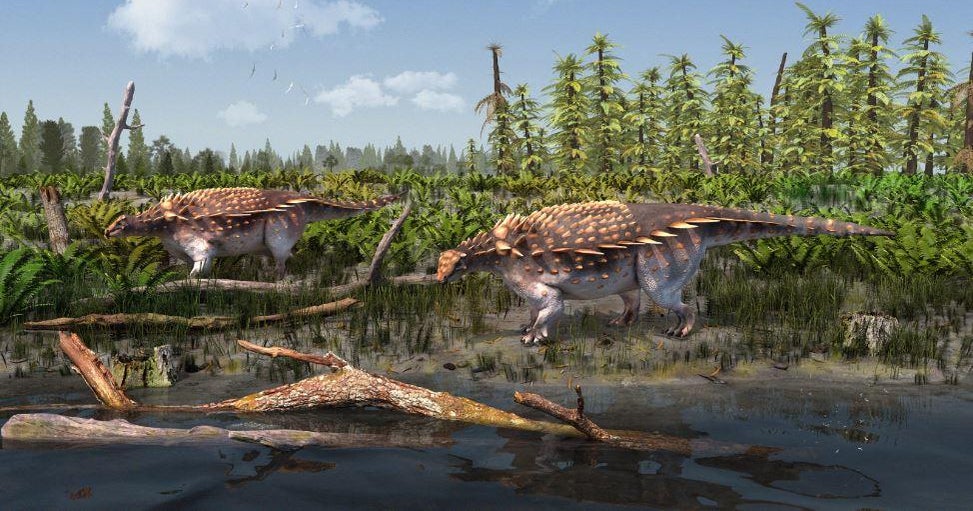London — A previously unknown dinosaur species has been discovered in the United Kingdom, specifically on the Isle of Wight. The newly-discovered dinosaur, named Vectipelta barretti, had blade-like spiked armor and was a herbivore, according to researchers from the UK’s Natural History Museum. The findings have been published in the scientific Journal of Systematic Palaeontology.
Vectipelta barretti is the first armored dinosaur of the Ankylosaur family to be discovered on the Isle of Wight in 142 years.
Over the years, the Isle of Wight has been home to the discovery of 29 different dinosaur species from various prehistoric periods. In 2021, two new species of large, predatory dinosaurs were found on the island.
Lead researcher Stuart Pond believes the discovery of Vectipelta barretti provides insight into the region’s species diversity during that time. “All ankylosaur remains from the Isle of Wight have been assigned to Polacanthus foxii, a famous dinosaur from the island. Now, all of those finds need to be revisited because we’ve described this new species,” he said.
The fossils of Vectipelta barretti demonstrate distinct differences in neck, back, and pelvic bones, as well as a more spiked set of armor plates compared to Polacanthus foxii.
Researchers speculate that the newly-discovered species may have been closely related to ankylosaur species found in China, suggesting that these dinosaurs could freely move between Asia and Europe between 66 million and 145 million years ago.
Additionally, the discovery site may contribute to understanding the extinction of dinosaurs. While there is ongoing debate about the cause of their demise, evidence suggests that both asteroid impacts and volcanic eruptions leading to climate change played significant roles.
The identification of Vectipelta barretti is named after Professor Paul Barrett from Britain’s Natural History Museum. The dinosaur’s remains will be showcased at the Isle of Wight’s dinosaur museum during the summer.
Denial of responsibility! VigourTimes is an automatic aggregator of Global media. In each content, the hyperlink to the primary source is specified. All trademarks belong to their rightful owners, and all materials to their authors. For any complaint, please reach us at – [email protected]. We will take necessary action within 24 hours.



